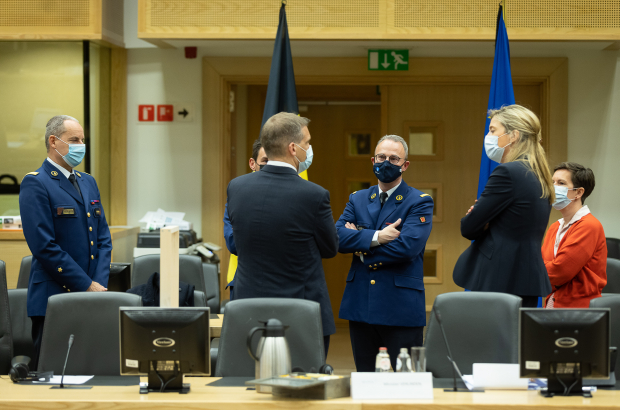- Daily & Weekly newsletters
- Buy & download The Bulletin
- Comment on our articles
Discussions begin on a new future vision for the Belgian police
A reflection exercise designed to begin the process of reforming the Belgian police force kicked off in Brussels on Tuesday.
Key stakeholders in the sector laid out the main topics for the discussion, citing the need to improve the image of the police, increase and better use its funding and how the police can face the challenges of new technologies. The General Police States (Segpol) exercise will also be used to map out how the police can be modernised into a force that meets the needs of society.
The last major police reform was 20 years ago, and since then, both society and the work of the police have evolved.
According to interior minister Annelies Verlinden, now is the time to analyse the functioning of the Belgian police forces and identify areas for change or correction. With the Covid-19 pandemic, "we realised that the world can change dramatically in a short period of time," she said. "Belgium is not the same as it was 20 years ago, and the police cannot lag behind."
Verlinden wants to tackle the funding of the federal and local police, consider the optimal size of the local police force and the functioning of the integrated police force. The work of the police must adapt as it faces changes in society, especially with new forms of protest evolving, specifically those launched on social networks without a clearly identified leader, she noted.
"The Boum events have also made us think about the relationship between young people and the police, in terms of trust," she added, referring to events held in the Bois de la Cambre to protest against the coronavirus restrictions. “The digitisation of society, road safety and the need for diversity within the police are other issues that need to be addressed,” the minister continued.
Segpol's goal is to gather "as many ideas, initiatives, and lessons as possible and then translate them into recommendations," Verlinden said.
While the structure and image of the police have changed, its essential mission, that of "contributing to the security of society", remains the same, according to Marc De Mesmaeker, commissioner-general of the federal police.
To do this, the police must be "agile" in order to "maintain its attractiveness in a society where the relationship to work has changed, with increased attention to personal well-being and a balance between work and private life," he said.
It must also better reflect the diversity of society and ensure that "its role is in line with the expectations and needs of society" by "openly debating the integrity, diversity and coercive actions" of the police with non-governmental organisations, trade unions, and other bodies. De Mesmaeker also referred to increasingly specialised crime, which requires a specialised police force.
A crisis of confidence in the police within society was cited by several stakeholders as a problem to be solved. The head of the Brussels South police zone, Jurgen De Landsheer, stressed the need to reform in order to rebuild the trust between the population and the police.
Nicholas Paelinck, chairman of the Standing Commission of the Local Police, said: "We need to reinvent ourselves." The police organisation must be ambitious and dare to experiment, he argued.
While Paelinck warned of the danger of changing too much, too quickly, he said the police should not rest on its laurels and should find a "balance between new technologies and police work." He also stressed the importance of securing the financial resources necessary to carry out this reform. In this regard, the Minister of the Interior announced the establishment of a "short-term" commission on the financing of police zones.
In concrete terms, the reflection will move in parallel in both the French and Dutch-speaking regions. Discussions on police reform in Flanders were launched in March, while the debate will start in Wallonia in September. On both sides, the operation will be similar, with discussions organised in thematic roundtables. Topics will include diversity and discrimination, force and violence, new and existing areas of police action, and the challenges of technical modernisation, which also leads to the development of new police skills.
"The central question is how we respond to the societal challenges of 2030," said Jean-Louis Dalle, president of the Circle of Police Leadership, a committee of senior Belgian police officers.
The general statements are expected to be completed by the end of 2022 or early 2023. An interim event will be held in 2022 to take stock of progress and analyse whether some recommendations can already be implemented. "The best is yet to come," the interior minister concluded.



















